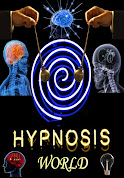HYPNOSIS FOR TREATING PHOBIAS
Hypnosis has been shown to be an effective treatment for
many individuals with phobias. A significant percentage of the population
suffers from a phobia of one type or another. For some individuals it can be
mildly distressing but manageable.
For
others it can be seriously debilitating. A phobia is an irrational fear of a
particular stimulus. This stimulus can be a situation, a thing, or an
activity.
People with phobias will
either go to great lengths to avoid whatever it is they fear, or they will
tolerate it with considerable anxiety. For some people, a phobia can trigger
panic attacks. In severe cases the phobia can end up literally controlling a
person’s life.
Hypnotherapy works by accessing the underlying cause of the
phobia and eliminating the person’s conditioned response to the stimulus. When
hypnosis is used to treat a phobia, the initial goal of the hypnotherapist is
to discover the initial event from which the phobia developed. The cause is
often a traumatic event which occurred at an earlier time in the person’s life.
Often the phobic individual does not remember this event. It may be a memory
which has been repressed for many years. Repression is a protective mechanism
our mind utilizes by keeping memory of the trauma out of our conscious mind
until we are ready and able to deal with it.
In order to access this memory, the individual will first
need to be in an extremely relaxed state. The hypnotherapist will use
techniques in order to help the person become very relaxed and focused. This
state of heightened relaxation and focus is referred to as the hypnotic trance.
It is during this state that the unconscious can be accessed. While in this
trance state a person is very receptive to suggestion, which is what opens the
door to bringing about the desired change.
Also, it is during this trance state that unconscious
memories can be unlocked and brought to conscious awareness. The hypnotherapist
does this by taking the person back to the place and time where the distressing
event occurred. Addressing this old memory consciously will enable the
individual to better understand it as well as begin to see it in a way which is
no longer threatening. When this is achieved, the phobia will generally
disappear.

This process is referred to as hypnotic regression. While it
can be very effective it can also be problematic. There is a lot of controversy
around this technique because if not done correctly or ethically, false
memories can also be created. This has led to many legal issues when hypnosis
is used with witnesses or defendants in law suits and there is a question of
false memories due to hypnosis.
In many cases, however, this is not an issue and the phobic
response can be dealt with very effectively using hypnosis. The hypnotherapist
can help the individual visualize himself facing the feared object or situation
without experiencing any anxiety. The hypnotherapist can guide the person in
creating new thoughts and responses regarding whatever it is he previously
feared.
The number of hypnosis sessions required for effectively
dealing with phobias varies, and depends on several factors. These factors
include how long the person has had the phobia, how severely the phobia affects
him, the person’s maturity, his personality structure, and how determined he is
to be free from the phobia. In general, it will take approximately three or
four hypnotherapy sessions. However, in
severe cases it can take more.
If you suffer from a phobia it is definitely worth
considering hypnosis as a means of treatment. While there are other methods
which may also be effective, hypnosis may help you overcome the phobia, and in
some cases even alleviate it altogether. However, if you do pursue hypnosis as
a means of treatment, be sure that you work with a person is who has the
appropriate training and experience.
Also, be sure that you feel comfortable working with this person as
trust is an essential element in any therapeutic relationship.








































































